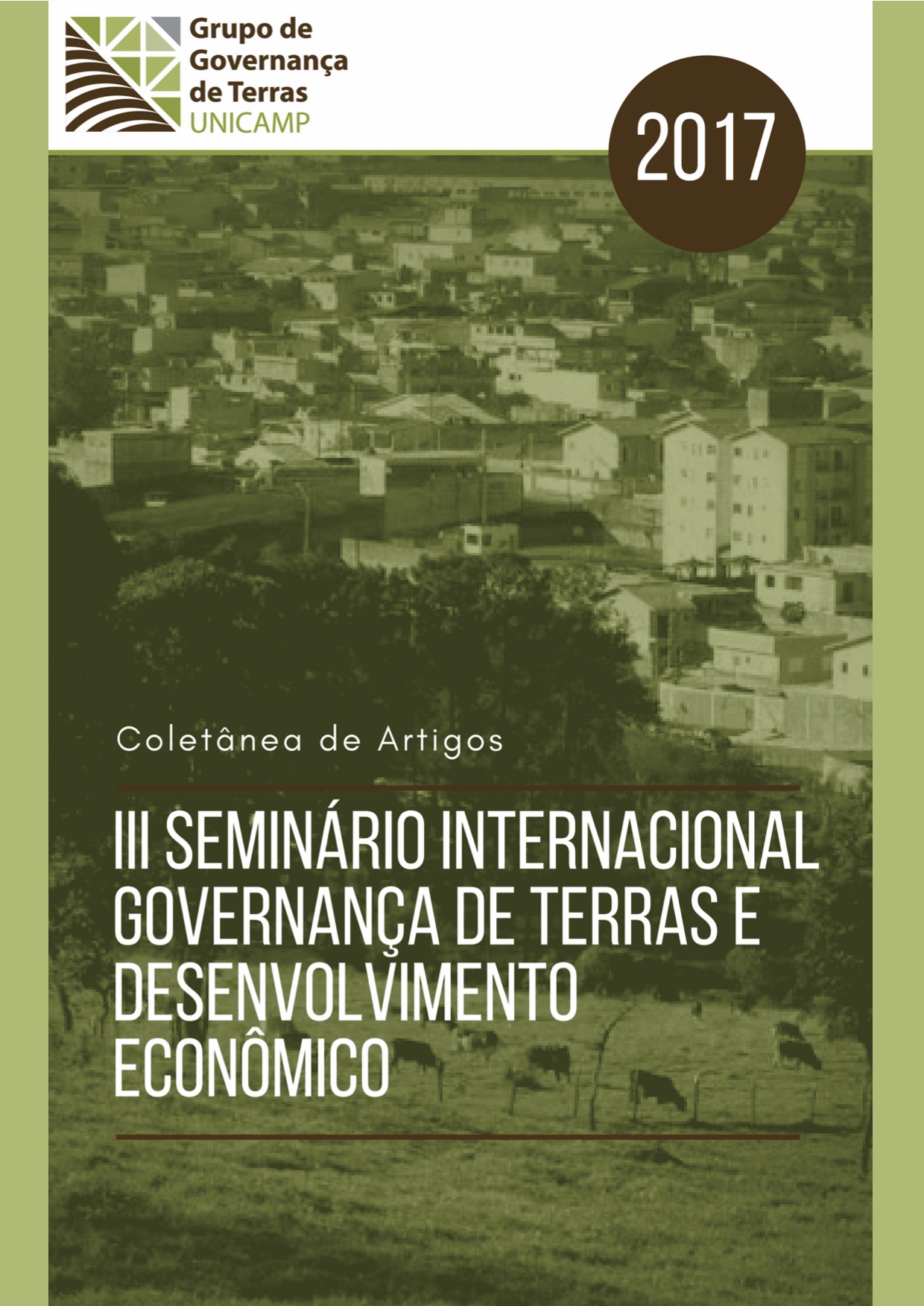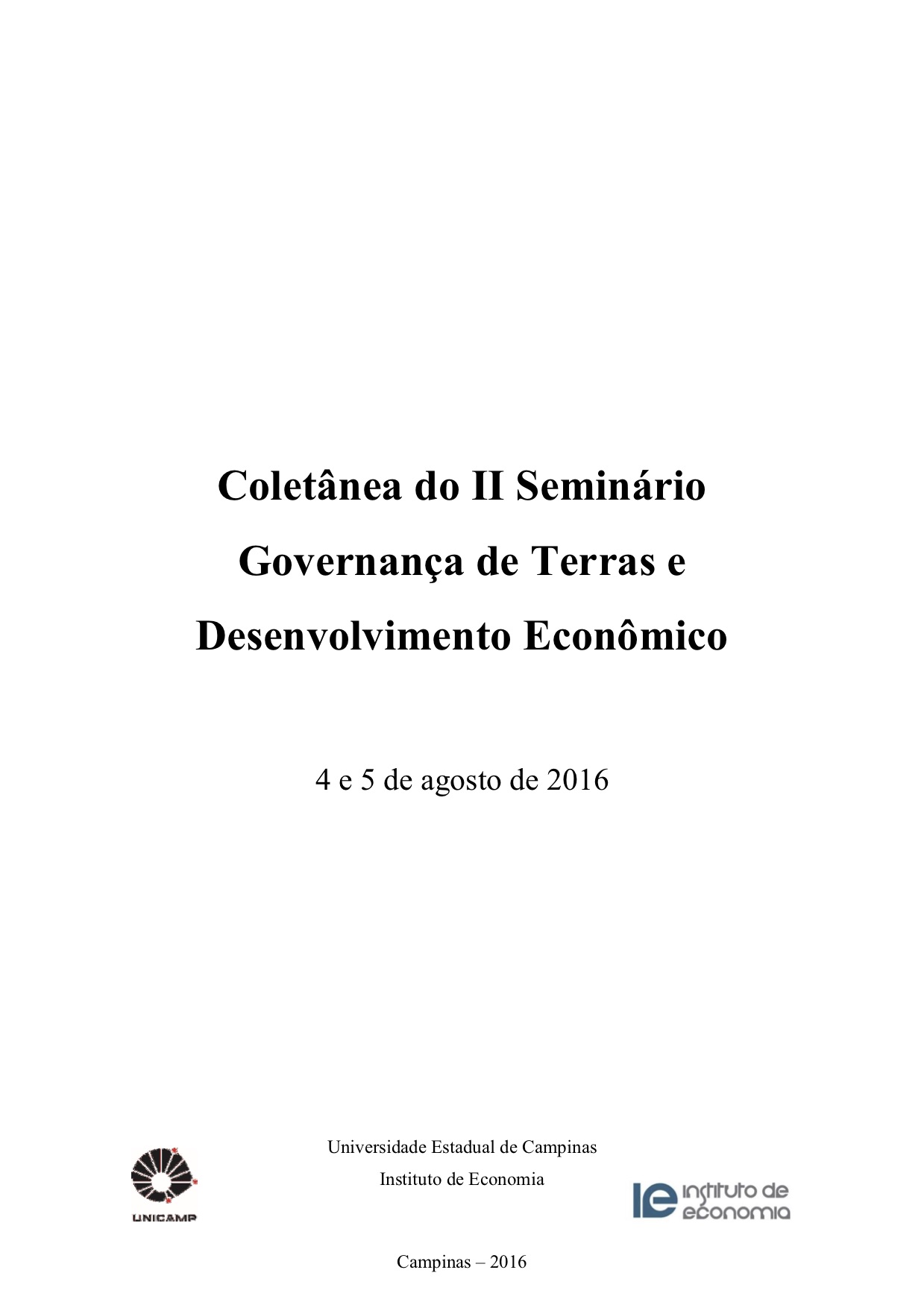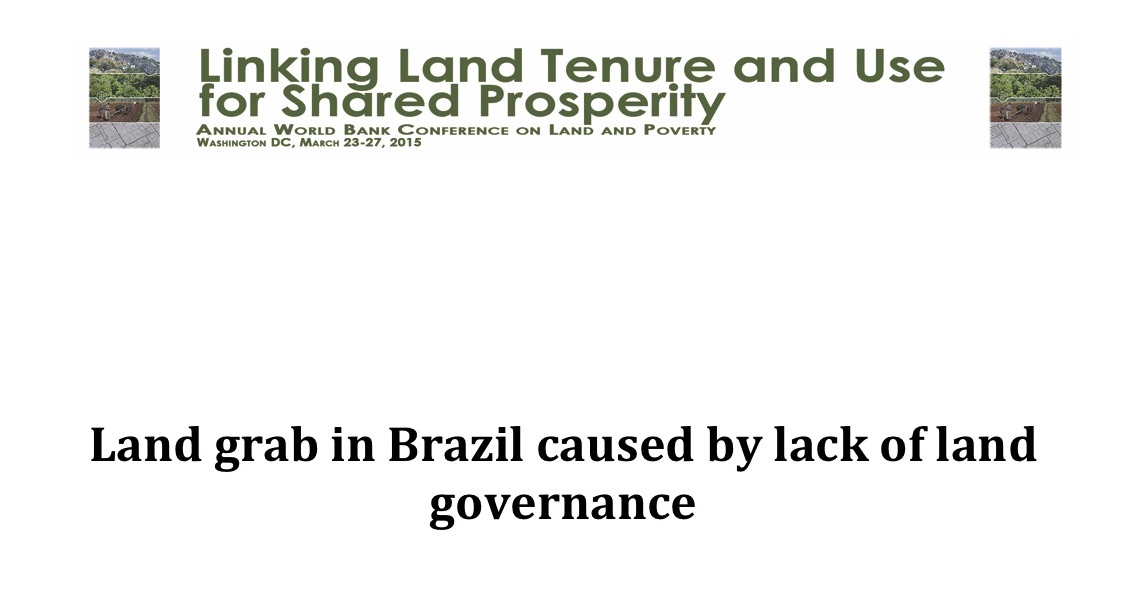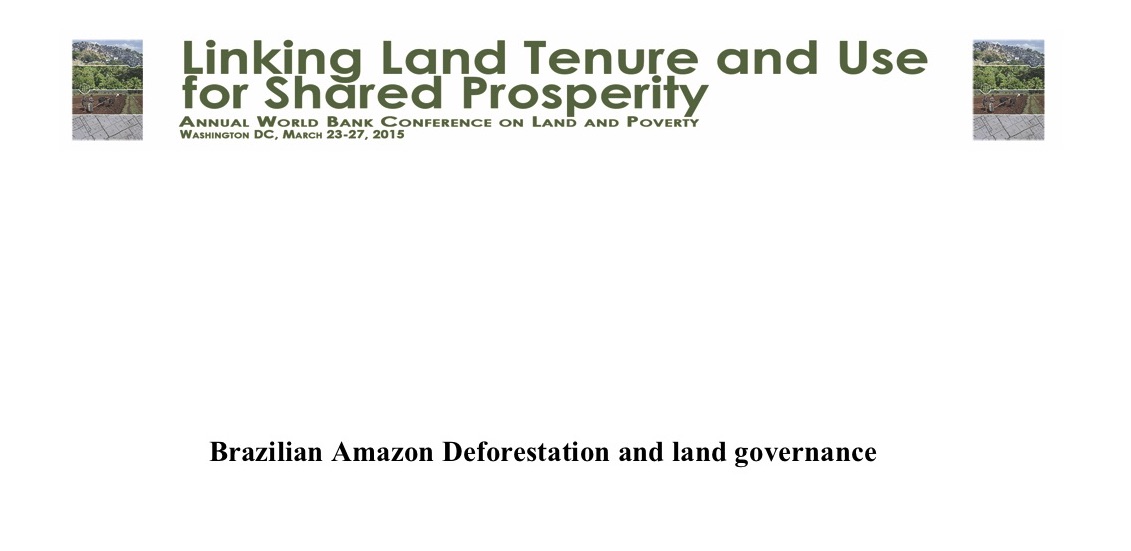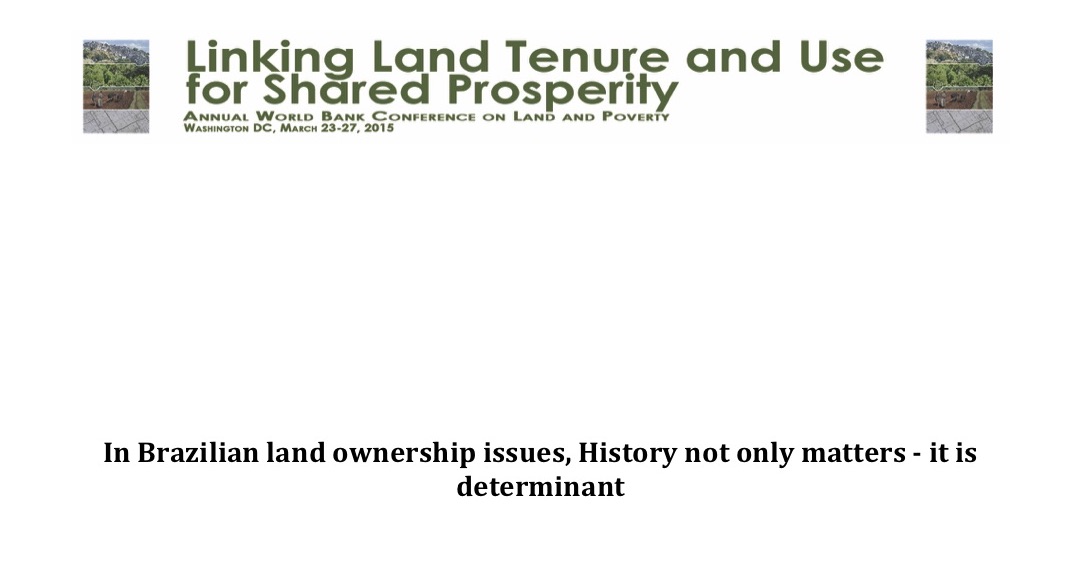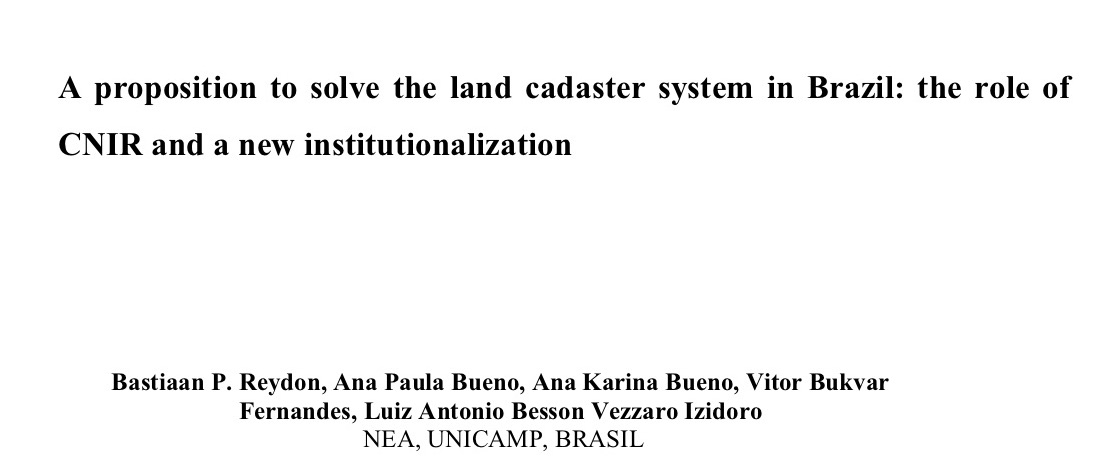
Topics and Regions
PHD in Urban Development at the Federal University of Perbambuco, Brazil. Research areas lines based on urban socio-spatial segregation, gender and urban planning, land rights and decolonial studies related to space production in indigenous contexts in Latin America.
Doutora em Desenvolvimento Urbano pela Universidade Federal de Perbambuco, Brasil. Linhas de pesquisa baseadas em segregação socioespacial na cidade, gênero e planejamento urbano, direitos à terra e estudos descoloniais relacionados à produção do espaço em contextos indígenas na América Latina.
Details
Affiliation:
Location
Contributions
Displaying 1201 - 1210 of 2296Os Zoneamento urbanos e a irregularidade das moradias em Campinas, SP
Land Governance and Development in Brazilian Rural Space: A comparison between Livestock and Agricultural production in Mato Grosso do Sul state.
This article presents a comparison for the impact from lack of land governance in Brazil between livestock and agricultural production. It begins with a brief description of the land regulatory system and its development in Mato Grosso do Sul State and Brazil. The methodology was based on focus groups research, conducted by CEPEA/USP (Center for advanced Studies on Applied Economics/University of São Paulo) on local production sites in Mato Grosso do Sul state, where a regional modal farm was established.
III Seminário Internacional de Governança de Terras e Desenvolvimento Econômico: Regularização Fundiária
Coletânea do II Seminário Governança de Terras e Desenvolvimento Econômico
Land grab in Brazil caused by lack of land governance
Brazil has the fifth-largest national land area in the world and this land resource represents a critical asset for the country’s urban, agricultural, and economic development, also providing essential environmental services. Nevertheless, it has a historical lack of governance over its lands, failing to provide secure land rights and to control the extensive frauds resulting in public and private land grabs. The objective of this study is to depict evidence of these land grabs and propose a typology for analyzing them.
Brazilian public land destination: a case study of the Terra Legal federal initiative and the province of Mato Grosso’s Land Institute.
Brazilian Amazon Deforestation and land governance
In Brazilian land ownership issues, History not only matters - it is determinant
From colonial to modern times, Brazilian agricultural property has remained immersed in a chaotic vortex of deregulation. Attempts of institutional reform - such as the Lei de Terras (Land Law) of 1850 - have been largely unsuccessful, whilst providing legal grounds for land grab by large estates and narrowing the scope of possibilities open for legitimate reevaluations of the first institutional landmark on land use and ownership in the country - the sesmarias.
A proposition to solve the land cadaster system in Brazil: the role of CNIR and a new institutionalization
Brazil has, on the one hand, strong institutions in various areas, improved social situation and, on the other, the rural land situation is still very precarious, with basic unresolved questions, such as for example, knowledge of what is public and private land, due to the absence of cadaster. The legislation moved forward in an attempt to link the cadasters of INCRA, the Internal Revenue Service, with information from the Registry of Real Estate with the enactment of Law No. 10,267 / 2001, creating the National Register of Rural Properties – CNIR.





